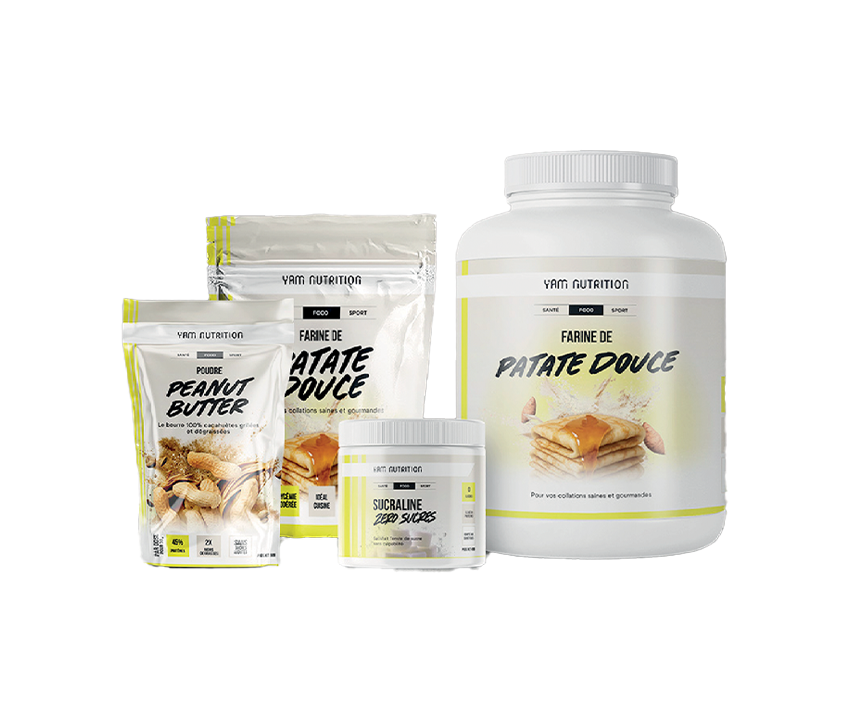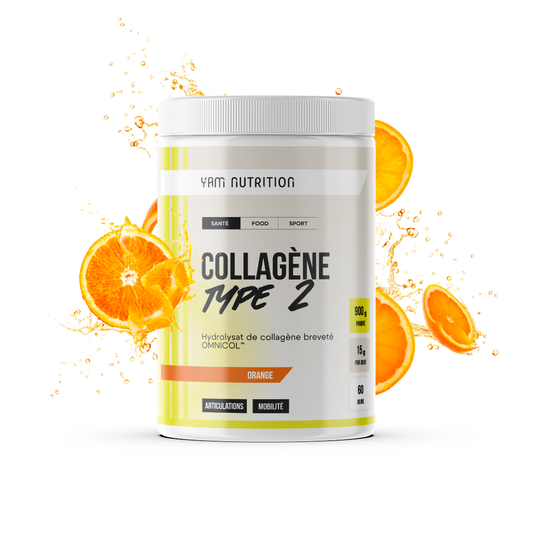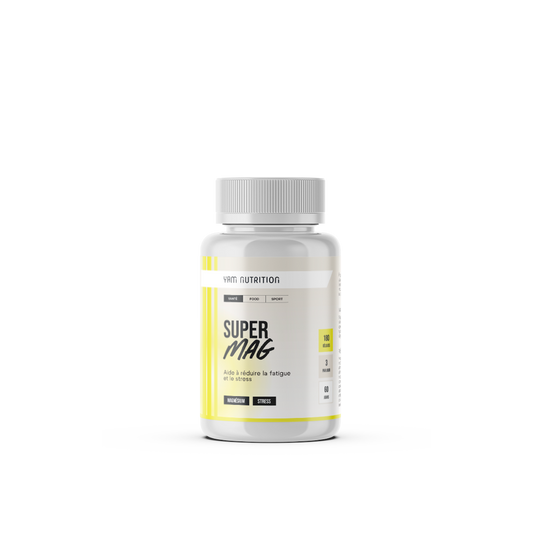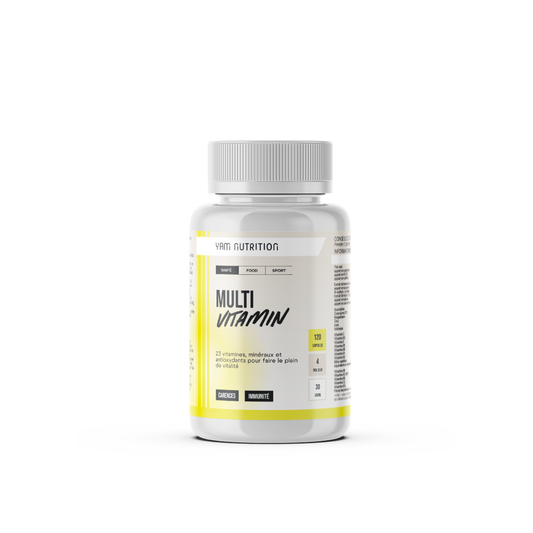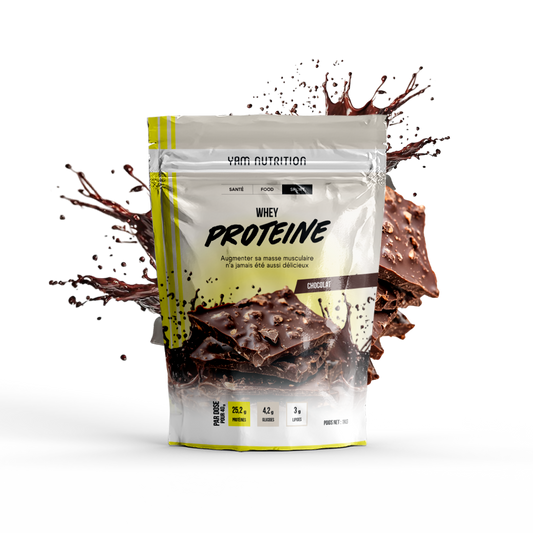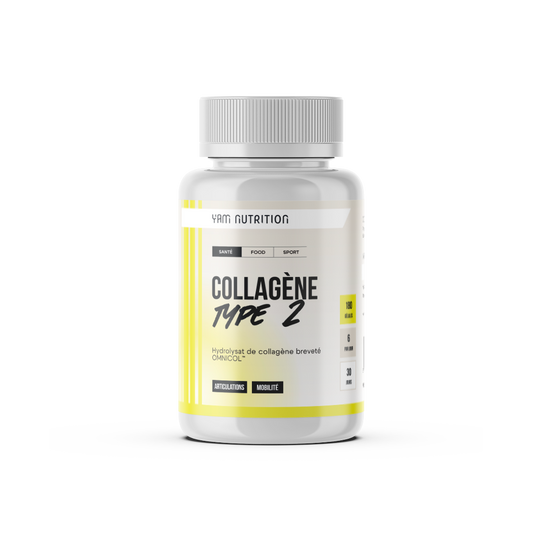Glutamine
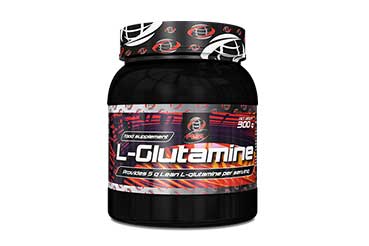
Among the 22 amino acids recognized by our genetic code, Glutamine ranks high. And if you do bodybuilding , you have probably often had the opportunity to read that its direct precursor, glutamic acid, appears in a good position on the aminogram of the labels of your protein powders. However, L-Glutamine is not really one of the essential amino acids , we have just told you why. Indeed, glutamine is one of the amino acids most widely found in your food and your protein food supplements. In addition, glutamic acid and glutamate are the two precursors of this nitrogenous base. Therefore, they allow you to find glutamine according to the nutritional or functional needs of your body.
OMNICOL™ Patented Collagen Hydrolysate A complex of 23 vitamins, minerals and antioxidants to boost your vitality Building muscle mass has never been so delicious
Collagen Type 2 Powder
Sale price
From 49,90 €
Multivitamin
Sale price
29,90 €
Whey Protein
Sale price
From 37,90 €
From a more general perspective, L-Glutamine is linked to protein synthesis as well as maintaining the immune system. Glutamine is also linked to gut health and the integrity of the intestinal walls. These two points are closely linked because the health of your intestines is naturally linked to the health of your immune system. Still, this amino acid, like L-Alanine, is one of those most often used by the body to synthesize glucose through gluconeogenesis.
Glucoforming amino acids are rapidly oxidized into cellular energy
Leucine, Glycine and Glutamine, three amino acids of muscle metabolism
In reality, amino acids are used at the same time as carbohydrates or fatty acids for energy. The three macronutrients are used as energy substrates in a completely indifferent way by the body, whereas we thought that fats were only oxidized late in endurance training. In reality, this is not the case. Regarding amino acids, glutamine is one of the most rapidly oxidized amino substrates. For this reason, researchers have noticed that the amount of L-glutamine can decrease rapidly during exercises of fairly medium or long duration.
The turnover of glutamic acid to glutamate and L-Glutamine, however, allows energy to be obtained. quickly for our muscle cells. However, glutamine stores are quickly depleted. Similarly, regular exercise helps increase blood glutamine levels. What needs to be understood here is that exercise constitutes a certain form of stress for the body. The body must then adapt to this stress and in this case, L-Glutamine is used as muscle and nerve fuel. Apart from L-Glutamine, other amino acids are also used by the muscle for energy.
Is L-Glutamine Deficiency Linked to Overtraining?
Restoring higher levels of Glutamine after intense training would also help stimulate the immune system than to reduce the risks of overtraining. To this end, this amino acid would stimulate post-exercise recovery. Currently, it is with this in mind that L-Glutamine is most often added to shakes protein by bodybuilders. At this level, we do not recommend that you only take this amino acid after a workout, but rather that you integrate it into 30 or 40 grams of protein powder. Thus, L-Glutamine powder can be part of your post-exercise recovery strategy. This is especially true since Glutamine will be mainly consumed by your intestines and, through this, it maintains your immune defenses in good condition. However, glutamine cannot be considered an ergogenic, like creatine. That is to say, it would be a substance that allows an increase in athletic or cognitive performance.
What is the role of Glutamine in relation to Leucine or Glycine?
Like any amino acid, L-Glutamine has similarities with other amino acids while having its own specificities. As we have seen on this blog, Leucine's primary role is not to serve as an energy substrate but rather to trigger protein synthesis in muscle fibers. The same goes for Glycine, which is involved in the synthesis of Collagen, the main structural protein in the human body . However, Glycine also helps restore energy synthesis through pyruvate. So, when comparing these isolated amino acids, it would be important to focus on the timing of intake to get the most benefits.
Glutamine contributes to intestinal health, the first barrier of the immune system
Finally, adding 5 grams of L-Glutamine to your post-workout protein shake could help with post-exercise recovery, starting with gut health. As for Leucine, it can be added in small amounts ( 3 to 4 grams maximum ) to your morning or afternoon protein shakes. Finally, Glycine can be added to a simple glass of water ( 3 or 4 grams once or twice a day ) for the benefits it provides to the body ( precursor to collagen and creatine ).
YAM Nutrition
Eric MALLET
Spécialiste en Nutrition Sportive
